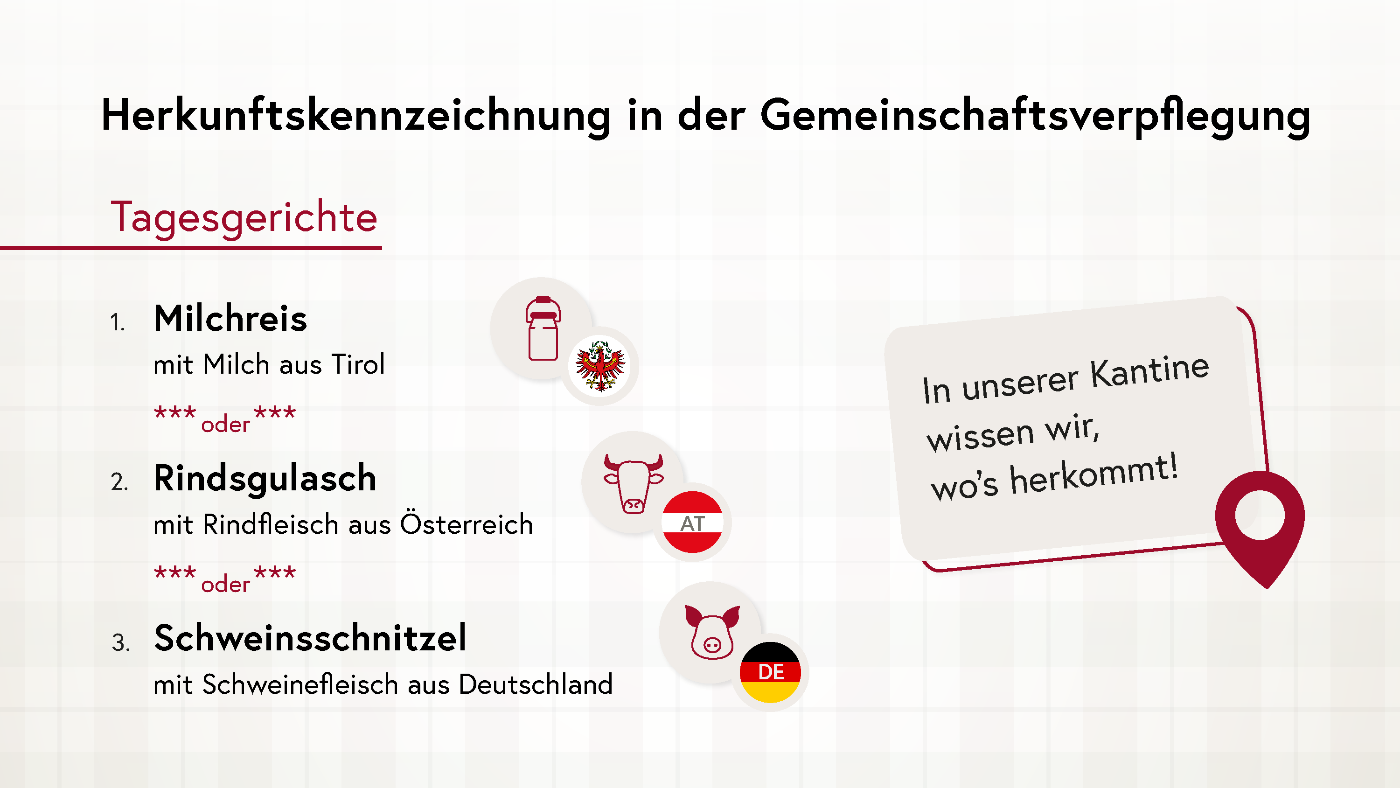Indication of origin in commercial kitchens and canteens

The "Ordinance on Information on the Origin of Ingredients in Meals Served in Communal Catering Facilities" was published in the Federal Law Gazette and came into force on 1 September 2023.
The obligation to indicate the origin of the basic ingredients milk, meat and eggs in public mass catering is a major milestone that strengthens our family farms, while at the same time bringing more transparency for consumers: In future, where Austria is inside, Austria will have to be written on outside!
In this way a key objective of the Agriculture chapter of the government programme is reached, to make the achievements of Austrian agriculture visible.
The aim of this Ordinance is to inform consumers about the origin of ingredients of meals served in communal catering facilities.
- The mandatory indication of origin applies to all commercial kitchens and canteens that regularly serve a basically constant group of people. The Ordinance thus essentially covers company canteens as well as catering in healthcare and educational institutions.

- In future, the origin (e.g. country, Federal Province, region) of the following foods must be indicated:
- Meat from cattle, pigs, sheep, goats, poultry or game;
- Milk and dairy products such as butter, curd cheese, sour cream, yoghurt, whipped cream and cheese;
- Eggs and egg products, such as liquid eggs, egg yolk, egg white or powdered eggs.
- For meat, the animal must be born, fattened and slaughtered in the specified country. In the case of milk, the labelling relates to the country in which the animal was milked. For eggs, the country in which the egg was laid must be stated. Smaller geographical units, such as a region or a Federal Province, can also be specified.
- The focus of the indication of origin is the correct information about the country, Federal Province or region from which the meat, milk or eggs originate. In cases where this is, for example, not traceable, the origin can also be "EU", "non-EU" or even "unknown". The information about the origin must be provided in a clearly legible and easily visible form, e.g. on a notice or in the menu.
- In principle, the indication of origin must be given in relation to the meal. If ingredients are not constantly available over a longer period of time, it is also possible to specify a percentage of the total purchase over a maximum of one year.
- In addition, all catering establishments that provide voluntary information on the origin of the food offered have a duty to ensure that the information is correct and not misleading.
The Ordinance that has now been published implements an important point of the government programme in the agriculture chapter.